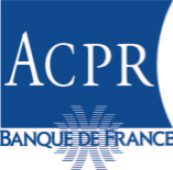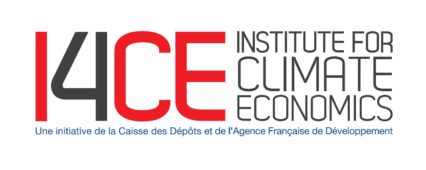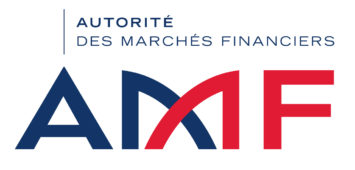Finance ClimAct, moving towards more sustainable financing
Finance ClimAct project supports savers, financial institutions and companies.
The programme aims to provide concrete tools to integrate climate issues into investment decisions, enabling financial flows to be aligned with energy-climate objectives and strengthening the resilience of the financial system to climate risks.
-
 Events to comeCOP 28: SUSTAINABLE FINANCE EVENTS Dernière mise à jour : 27 November 2023
Events to comeCOP 28: SUSTAINABLE FINANCE EVENTS Dernière mise à jour : 27 November 2023As part of the LIFE Finance ClimAct project, ADEME and the Sustainable Finance Observatory will be organising two events at… Read more
-
 Events to come2DII CONFERENCE ON SUSTAINABLE FINANCE AND BIODIVERSITY: MAINSTREAMING FINANCE FOR BIODIVERSITY Dernière mise à jour : 10 October 2023
Events to come2DII CONFERENCE ON SUSTAINABLE FINANCE AND BIODIVERSITY: MAINSTREAMING FINANCE FOR BIODIVERSITY Dernière mise à jour : 10 October 2023The aim of this event is clear: to explore how sustainable finance can promote the conservation and restoration of biodiversity. Read more
-
Climate target setting +2L’Ademe publie l’évaluation du plan de transition d’Amundi dans le cadre des Say on climate 6 May 2024
En 2024, l’ADEME et le FIR se sont associés afin d’étudier les stratégies climatiques des entreprises françaises soumis au vote consultatif des actionnaires dans le cadre de leurs assemblées générale. Dans ce cadre, le plan de transition d’une entreprise financière, Amundi, dont l’assemblée générale a lieu le 24 mai, est analysé grâce à la méthodologie ACT Investisseurs. L’évaluation met en avant quelques éléments clés du plan climat de l’entreprise : Amundi met en oeuvre le plan Ambition ESG 2025, qui comprend des éléments forts tels que le déploiement de solutions d'investissement « Net Zero » pour chaque classe d'actifs et une politique d'engagement élargie. Le plan semble en bonne voie. Cependant, son potentiel pour atteindre l'accord de Paris est considérablement affaibli par le fait que l'objectif principal d'Amundi reste de répondre aux demandes de ses clients potentiels, y compris ceux qui ne souhaitent pas prendre en compte les aspects climatiques. En outre, conformément à l'état global du marché, Amundi n'a pas encore mis en place un cadre de catégorisation complet et systématique analysant les actifs du point de vue de l'alignement sur le climat. Download file
-
+2New methodology: ACT Adaptation 5 October 2023
The ACT team is delighted to announce the publication of its latest methodology: ACT Adaptation. Rising temperatures, a lack of operational frameworks to assess the adaptation strategies of private players, and a growing concern for adaptation, led us to develop this methodology. ACT Adaptation assesses the quality and comprehensiveness of a company's adaptation strategy, from physical risk analysis to governance, taking into account the entire value chain. This methodology is the result of long-term work by Stephia Latino, Adaptation Methodology Engineer at ADEME, supported by Romain Poivet, Head of Climate and Energy Commitment and Robert Bellini, Head of Adaptation to Climate Change. In particular, it has been tested by 13 international volunteer companies from different sectors to ensure its relevance and effectiveness. Download file
-
 Events to comeCOP 28: SUSTAINABLE FINANCE EVENTS Dernière mise à jour : 27 November 2023
Events to comeCOP 28: SUSTAINABLE FINANCE EVENTS Dernière mise à jour : 27 November 2023As part of the LIFE Finance ClimAct project, ADEME and the Sustainable Finance Observatory will be organising two events at… Read more
-
 Events to come2DII CONFERENCE ON SUSTAINABLE FINANCE AND BIODIVERSITY: MAINSTREAMING FINANCE FOR BIODIVERSITY Dernière mise à jour : 10 October 2023
Events to come2DII CONFERENCE ON SUSTAINABLE FINANCE AND BIODIVERSITY: MAINSTREAMING FINANCE FOR BIODIVERSITY Dernière mise à jour : 10 October 2023The aim of this event is clear: to explore how sustainable finance can promote the conservation and restoration of biodiversity. Read more
-
Climate target setting +2L’Ademe publie l’évaluation du plan de transition d’Amundi dans le cadre des Say on climate 6 May 2024
En 2024, l’ADEME et le FIR se sont associés afin d’étudier les stratégies climatiques des entreprises françaises soumis au vote consultatif des actionnaires dans le cadre de leurs assemblées générale. Dans ce cadre, le plan de transition d’une entreprise financière, Amundi, dont l’assemblée générale a lieu le 24 mai, est analysé grâce à la méthodologie ACT Investisseurs. L’évaluation met en avant quelques éléments clés du plan climat de l’entreprise : Amundi met en oeuvre le plan Ambition ESG 2025, qui comprend des éléments forts tels que le déploiement de solutions d'investissement « Net Zero » pour chaque classe d'actifs et une politique d'engagement élargie. Le plan semble en bonne voie. Cependant, son potentiel pour atteindre l'accord de Paris est considérablement affaibli par le fait que l'objectif principal d'Amundi reste de répondre aux demandes de ses clients potentiels, y compris ceux qui ne souhaitent pas prendre en compte les aspects climatiques. En outre, conformément à l'état global du marché, Amundi n'a pas encore mis en place un cadre de catégorisation complet et systématique analysant les actifs du point de vue de l'alignement sur le climat. Download file
-
+2New methodology: ACT Adaptation 5 October 2023
The ACT team is delighted to announce the publication of its latest methodology: ACT Adaptation. Rising temperatures, a lack of operational frameworks to assess the adaptation strategies of private players, and a growing concern for adaptation, led us to develop this methodology. ACT Adaptation assesses the quality and comprehensiveness of a company's adaptation strategy, from physical risk analysis to governance, taking into account the entire value chain. This methodology is the result of long-term work by Stephia Latino, Adaptation Methodology Engineer at ADEME, supported by Romain Poivet, Head of Climate and Energy Commitment and Robert Bellini, Head of Adaptation to Climate Change. In particular, it has been tested by 13 international volunteer companies from different sectors to ensure its relevance and effectiveness. Download file




















